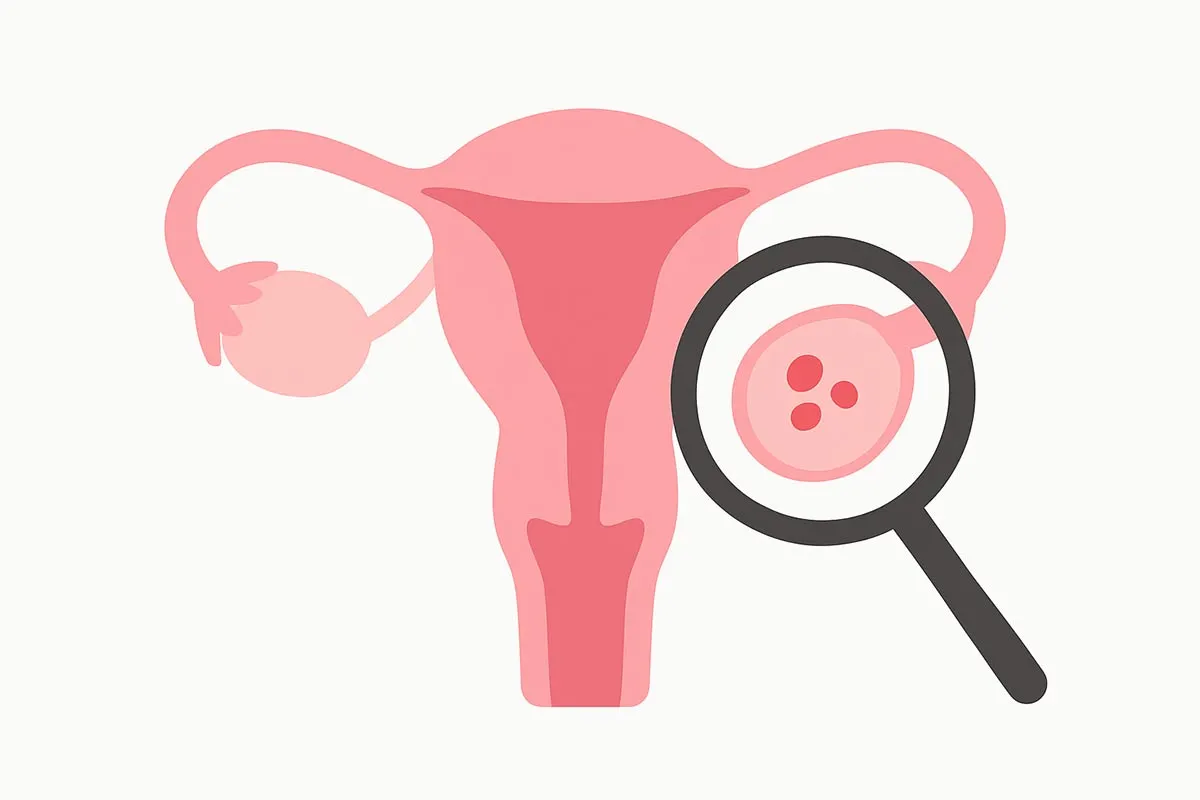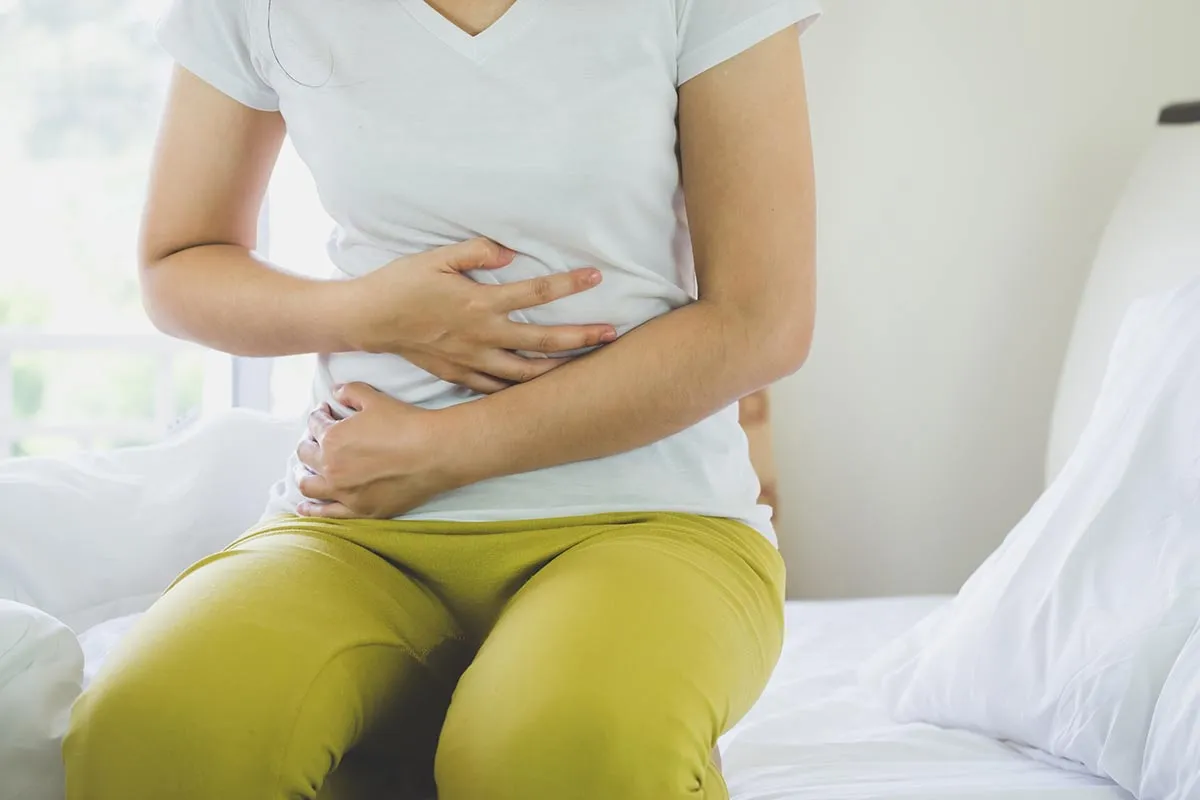Understanding the causes of painful sex in women and ways to overcome it
Physical Intimacy is considered as a source of closeness, comfort and connection for many couples. But when during sex a female partner experiences pain instead of pleasure, that sense of closeness can quickly turn into confusion, distress, and emotional distance. What should feel natural and pleasurable may instead bring discomfort, burning, or deep pelvic pain, turning a moment of intimacy into a source of anxiety or guilt. This experience often referred to as dyspareunia, is more common than many realize, yet rarely talked about openly. This painful experience ranges from mild to severe irritation which can affect not only the physical relationship but also emotional well-being and self-confidence. Understanding the causes behind painful sex is the first step toward healing, communication, and restoring intimacy without fear.
Dyspareunia is a medical term used for “pain during sex” or “painful intercourse”.
Dyspareunia is occurring frequently with global prevalence estimates ranging from 3% to 18%. Although it’s a common but much neglected aspect of female life. Research indicates there are so many underlying medical causes of Dyspareunia. Some common causes are hormonal changes (especially during breastfeeding and menopause), insufficient lubrication, infections, chronic conditions like fibroids or ovarian cysts , pelvic floor muscles dystrophy, lower back pain . It has been noticed that psychological stressors also contribute in turning down the pleasure moment into pain. By understanding the underlying reasons behind your discomfort, you can work with healthcare professionals to develop an effective treatment plan tailored to your specific needs.

Pain during sex manifests in different ways, each indicating the different underlying causes. Mainly, it is categorized in two categories on the basis of location. Superficial pain and Deep pain. Superficial pain also known as entry pain feels at the opening of vagina or vulva (outer genitalia). This pain feels right after initial penetration, and usually it is explained as burning, stinging or sharp discomfort. This type of pain is usually associated to issues like vaginal dryness, infections (yeast, bacterial vaginosis, UTIs), vulvodynia, skin conditions (lichen sclerosus), or reactions to spermicides or latex.
Deep pain during sex feels deep inside the pelvic cavity after deep penetration of penis. This pain is usually associated with underlying medical conditions like endometriosis, ovarian cysts, and pelvic inflammatory disease. Another cause for deep pain is pelvic floor muscle dysfunction, in this condition muscles are over tight or in spasm which causes severe pain with penetration. Deep pain feels like aching, pressure, or sharp stabbing sensations which persists even after intercourse.
Dyspareunia is very closely associated with certain illnesses in females. Endometriosis and pelvic inflammatory disease are among the top of them. In endometriosis, uterine tissues grow outside the uterus and cause pain during sex. Pelvic Inflammatory Disease usually occurring due to untreated sexually transmitted infection can cause severe pain and tenderness. Some other medical conditions like Ovarian Cysts, Fibroids and adenomyosis are also responsible for painful intercourse. Some autoimmune diseases like Lupus or inflammatory bowel Disease are also found as the culprit behind sexual pain as they make the tissue lining of the pelvic cavity very sensitive and inflamed.
To evaluate the causes of pain during sex, it’s important to ask the patient about past surgical history. Surgical procedures like Hysterectomies, recent Cesarean sections, episiotomies and other surgical procedures of the pelvis can cause pain during intercourse. Similarly cancer therapies for the pelvic area are also known for causing dyspareunia as they make the vaginal narrowing, dryness and tissue changes. Recovery from childbirth, especially in case of difficult delivery and tearing makes the sexual activity painful. There are certain medications which have the side effects of lowering sexual desire. Antidepressants and Antihistamines are among them as they reduce natural lubrication of vagina and lower sexual desire.

A burning or stinging sensation at the opening area of Vagina is considered normal when penetration occurs at the beginning of sex activity. But if the condition persists throughout the sexual activity then it is associated with medical conditions like infections. Insufficient Lubrication can be considered to be the primary cause of painful sex. It could be due to infections, medications or stress. Yeast infections and bacterial vaginosis are known to disrupt the natural pH of vagina and make vaginal wall linings inflamed leading to painful sex. Allergic Reactions to soap, condoms, lubricants or other products may cause pain during sex.
Urinary tract Infections also cause inflammation in the vaginal area and may cause intense burning during and after intercourse. Vaginal Atrophy, leading to thinning and drying of vaginal tissues can make burning and stinging sensation due to penetration. Vaginal atrophy occurs due to imbalance in hormones, menopause and some medical conditions. Vulvodynia is a chronic pain condition which affects the vulvar area and causes burning and stinging sensation. This condition also makes the sex painful. If there is persistent burning without infection, then treatment focuses on managing nerve sensitivity and reducing inflammation, involving topical medications, pelvic floor therapies or some nerve blocks. If you are suffering from such a sensation, consulting a specialist at a clinic like Pain Treatment MD will help you in finding the right treatment plan.

This is the common question “what causes pain during sex in females? Deep pelvic pain during sex can result from different underlying medical conditions, many of which involve the reproductive organs. One highly known cause is endometriosis, a condition where tissue similar to the lining of the womb grows outside it, affecting about 1 in 10 women worldwide. Endometriosis often causes pain during deep penetration, especially when the tissue affects nearby pelvic organs. Pelvic Inflammatory Disease (PID), often triggered by sexually transmitted infections, can cause inflammation in the womb, fallopian tubes, and ovaries, leading to lower abdominal pain and discomfort during sex.
Uterine fibroids, which are more prevalent in women, and ovarian cysts can also contribute to painful intercourse due to their pressure effects or complications. Interstitial cystitis, or bladder pain syndrome, adds another layer of discomfort, manifesting as frequent urination and pelvic pain. Additionally, structural issues like womb prolapse or a retroverted uterus may lead to discomfort. Non-reproductive causes such as pelvic congestion, irritable bowel syndrome, fibromyalgia, and pelvic adhesions from previous surgeries also play a role. It is advised whenever any female is experiencing such deep pain, always consult the healthcare specialist so you can take a better step toward healing.

Pain after sex is a very stressful situation as it converts pleasure and enjoyable moments into discomfort. If the discomfort lingers beyond intimacy then it must be a clear indication for something to rule out. Pain after sex usually manifests as a throbbing, burning, and aching sensation which persists for minutes to hours after intimacy ends. Common causes of post sex pain are infections like urinary tract infection, pelvic disease, hormonal imbalance, and menopause. This pain is usually accompanied by some bleeding, unusual discharge or other symptoms which need medical consultation.
Vaginismus, a condition of involuntary tightening of muscles, can trigger pain during sex in females. This type of pain lingers on post sex and may impact daily activities. If there is any existing musculoskeletal condition like hip pain or lower back pain, it can also cause discomfort post sexual activity due to positioning. It’s important to understand the cause behind pain and get it resolved by a healthcare specialist so this cannot linger on after sex. A proper history, assessment, physical examination, labs investigations and some imaging will be suggested by your doctor for ruling out the primary cause.

Physical Intimacy is for pleasure not for discomfort, but if you are suffering any kind of pain whether it’s during sex or post sex, it is important to seek help. Discussing this pain will be making you uncomfortable but your health should not compromise. As pain during sex and post sex can impact your daily routine, your relationship with your partner and make you stressful. It has been observed that usually patients are hesitant to discuss their sexual problems and they can go unnoticed for a long time.
If you have any questions regarding your painful situation, ask away, don’t feel shy. Discuss openly about the cause, management plan and any physical therapy if required.
The symptoms, physical findings, and concerns related to dyspareunia are managed by collaborative efforts of a team consisting of gynecologists, urologists, psychiatrists, pain specialists, and paramedical staff. Patients should be encouraged to discuss their sexual health with a physician. Dyspareunia is a challenging topic for discussion for both the patient and the healthcare provider. It can also lead to suboptimal management.
Usually stress, anxiety, past trauma, relationship problems, or fear of pain can create mental stress. These events lead to unconscious pelvic floor muscle tightening (vaginismus), reduced natural lubrication, and heightened pain perception, making intercourse very painful. It’s important to address these factors through therapies.
Yes, absolutely. If there is a persistent pain during and after sexual activity then this must be an indication of underlying infection. Yeast and bacterial infection cause inflammation in the vaginal walls lining leading to pain during intercourse.
Treatments entirely depend upon the root cause of pain. For hormonal imbalance, hormonal therapy is the treatment. For infections antibiotics are given. Some pelvic floor exercises and lubricants are also recommended as a management plan. For a better pain management plan consult your health specialist.
Yes. There are some important lifestyle changes which help you to enjoy your pleasure moments pain free. Try to priorities some foreplay for natural arousal or use some lubricants. Seek help for stress and pain management. And more importantly communicate with your partner openly about your needs and comfort.
When physical intimacy becomes painful, it can put a strain not just on your body, but on your relationship and emotional wellbeing. It’s important not to ignore painful sex as it is comfortable. It can impact your relationship with your partner. So it’s important to pause, listen to your body and seek guidance. By understanding painful intercourse (also known as Dyspareunia, taking measures to resolve it, is the first step toward healing. If you are experiencing persistent pain during and after sex, then consult a healthcare professional who can guide through diagnosis, treatment plan and emotional support. By finding the root cause, discussing it with your partner and seeking right medical help can bring calm and comfort in your relationship. Pain is not something you have to accept, your wellbeing matters. Seek help and enjoy your life with your partner.

